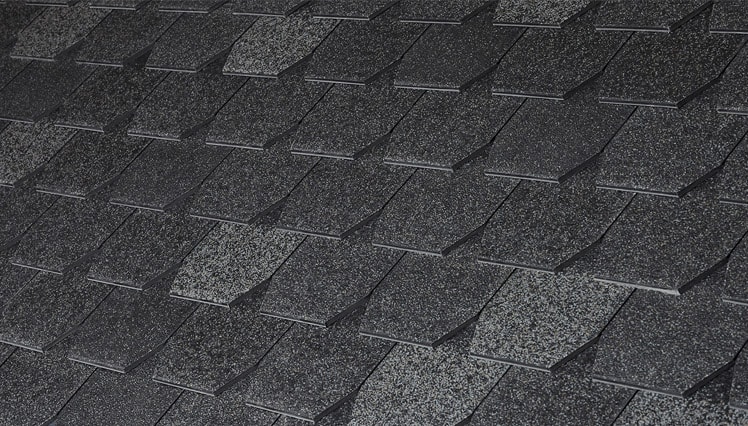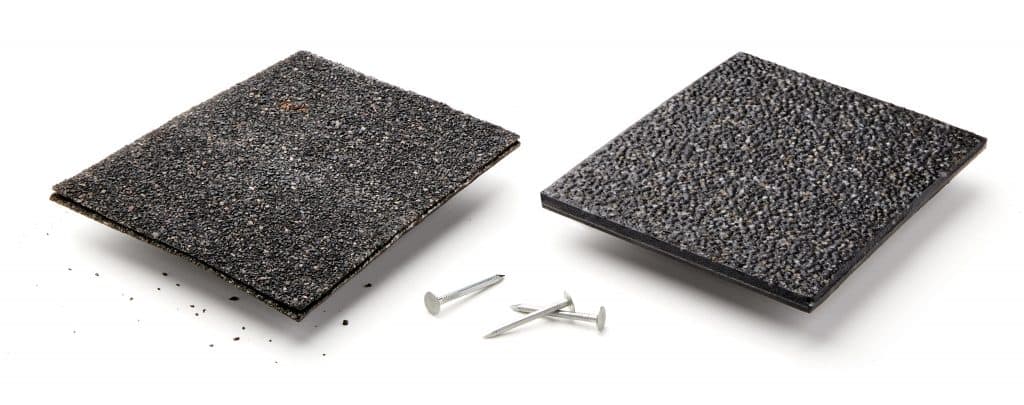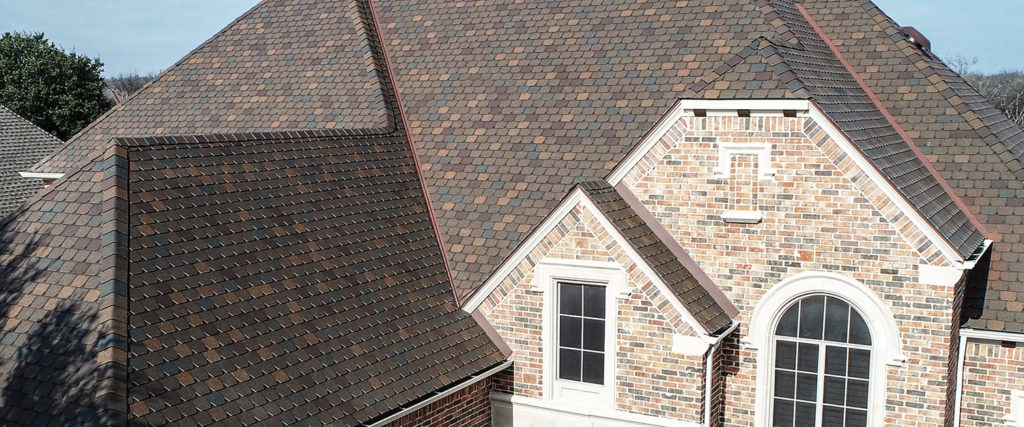6 Common Problems You’ll Want to Avoid with Asphalt Roofing Shingles
Asphalt Alternatives

Asphalt shingles have long been a popular roofing option, for many good reasons. They are easily accessible, affordable, and incredibly versatile in their style applications. However, that doesn’t mean they are without issues. There are some problems with asphalt roof shingles that all homeowners should be aware of when choosing their roofing material.
Being aware of these problems beforehand–and the different possible alternatives–will help you to make a more educated decision about your roofing choices.
When it comes to roofing, blisters are elevated sections of the shingles. Several different factors cause these elevated areas. Small blisters are usually due to aging, but they can also be a sign of a defective product. Asphalt shingles can also blister from poor roof ventilation.
Regardless of the cause, shingle blistering is an unattractive issue that can lead to more significant problems if left unchecked.
Another issue with asphalt shingles that you may encounter is curling. Curling is when the asphalt shingles begin to curl away from the surface of the roof. Typically, curling is a moisture-related issue. In some cases, moisture may get into the shingles during the actual manufacturing process, while in other cases, it may accumulate in the shingles over time due to poor roof ventilation.
Once the moisture begins to escape, the dimensions of the shingles can start changing. The more severe the issue, the more likely the shingles will need to be tabbed down or replaced entirely.
If not installed correctly, asphalt shingles can be more susceptible to strong winds. As strong winds hit the roof, the shingles can get lifted and even possibly torn off the roof. Unfortunately, once a roof has raised shingles, there is no way to fix it, and the only solution is to replace the entire roof.
Another problem with asphalt shingles is surface cracking, especially when it is premature. While surface cracking does not tear a shingle, it can be a sign of aging and lead to more considerable damage if not dealt with quickly. However, cracking can also occur as shingles move due to things like high winds, which can have a number of effects on asphalt shingles.
If asphalt shingles are subject to extreme temperature changes, the shingles can begin to crack and may even split completely. It can prove to be a severe issue that can impact the integrity of your entire roof, especially if any cracks go unnoticed. Over time, these cracks can allow moisture to seep through the shingles and into other layers of roofing, which can lead to all types of serious and costly damage.
A big problem you can encounter with asphalt shingles is granule loss. The granules on asphalt shingles make up the uppermost layer of the shingle and they are there for more than just appearance. The granules help to protect the shingles from water damage, provide UV protection, and can even offer some fire resistance. Granule loss is something serious you never want to ignore, as it is a sign your roof is reaching the end of its life.
Granule loss can happen in different ways. The most common is granule loss over time due to age. However, weather such as strong winds and heavy rain, and even harsh cleaning, can also lead to granule loss.

Any of these problems with asphalt shingles can be stressful and exhausting. In most cases, the easiest way to remedy any of these issues is to replace the entire roof, which is incredibly expensive. Instead, you could consider an alternative to asphalt roofing.
F‑Wave is a company that offers the perfect alternative: synthetic roofing shingles. Both types of their REVIA® synthetic roofing shingles are made using a commercial-grade polymer material. While they may look similar to traditional asphalt shingles, they are more durable, lightweight, easier to install, and require much less maintenance.

The REVIA® shingles feature a Class 4 Hail warranty, a Class A Fire Rating, and can withstand winds up to 130 mph. Furthermore, they are resistant to UV damage and weathering, and feature a tough, single-piece construction. The single-piece construction means that there is no need to worry about layers of materials coming undone and curling. A single, durable layer of material also means it will not tear as easily as ordinary asphalt shingles. There is also no asphalt and no granules, so there are two fewer things to worry about.

Asphalt shingles are the common choice for roofing, but that doesn’t mean they are perfect. There are plenty of problems associated with asphalt roof shingles that can be exhausting and costly for homeowners.
If you want to save money on your roofing and not have to worry about replacing it sooner, consider choosing the F-WAVE® REVIA® synthetic shingles. They are just as beautiful and affordable as asphalt shingles and they offer far more durability, so your maintenance costs will be reduced dramatically.